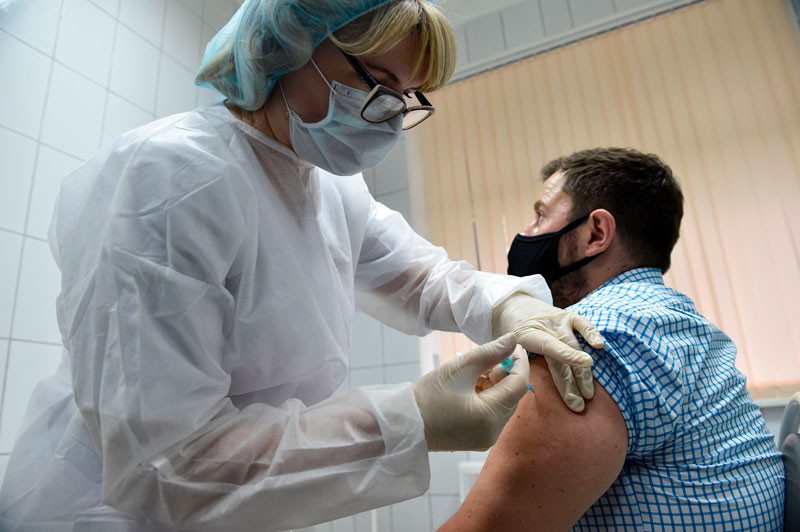The Autism Society of America applauds the global scientific and medical community for developing 95% effective COVID-19 vaccines from Pfizer/BioNTech and Moderna, where Pfizer/BioNTech has already received approval for emergency use authorization (EUA) by the Food and Drug Administration (FDA). The Autism Society enlisted the support of other national disability organizations to unite and urge the autism community to be vaccinated as distribution becomes possible. Individuals with autism and other developmental disabilities are at a greater risk for severe complications and death from COVID-19, especially if they have underlying health conditions or are living in congregate settings. On behalf of signatory groups to this statement, which represent and/or are affiliated with hundreds of thousands of people with intellectual and developmental disabilities (I/DD), we collectively agree that people with autism and I/DD should be included in the group of high-risk diagnoses and prioritized for vaccination.
Ending the pandemic requires a multipronged application of evidence-based strategies while improving health equity: universal face mask use, physical distancing, avoiding nonessential indoor spaces, increasing testing, prompt quarantine of exposed persons, safeguarding those at increased risk for severe illness or death, protecting essential workers, postponing travel, enhancing ventilation and hand hygiene, and achieving widespread COVID-19 vaccination coverage.
The scientific and medical community at large has concluded that the COVID-19 vaccination development process has been conducted with routine processes and procedures in place to maintain sound science and ensure the safety of the global community. Vaccines will be provided in a phased approach, with those at risk of exposure or vulnerable receiving the vaccine first. Children are expected to be the last to be vaccinated, which will allow time for the vaccine clinical trials involving children to provide safety data and confidence in their efficacy in younger populations. As with any medical decision, the Autism Society of America encourages parents, caregivers and autistic individuals to discuss the COVID-19 vaccines with their physicians.
The autism community appreciates the statement from the FDA regarding the safety of the vaccine development, “We are committed to expediting the development of COVID-19 vaccines, but not at the expense of sound science and decision making. We will not jeopardize the public’s trust in our science-based, independent review of these or any vaccines. There’s too much at stake.”
Early testing and research have concluded that the Pfizer/BioNTech and Moderna vaccines worked to about the same degree across all different groups, ethnicities, and genders – including variations in age and underlying conditions. In addition to these two vaccines, several other vaccines are currently being tested and look promising.
We encourage our stakeholders to receive the COVID-19 vaccine because:
- Anticipated approved vaccines make it significantly less likely you’ll get COVID-19.
- Getting vaccinated may keep you from getting severely ill if you were to contract COVID-19.
- Getting vaccinated will help protect vulnerable people around you, including the elderly, people with disabilities, and those with underlying health conditions.
Vaccines work to save millions of lives each year. In addition to receiving the COVID-19 vaccine, being up to date with general vaccinations protects the general health of individuals with autism. Mass COVID-19 vaccination would allow our global community to recover and help stop the pandemic. For the autism community, this means:
- Individuals in group homes and congregate settings would be able to be reunited with family, friends, and a support network.
- Educational routines will not require remote learning.
- Transition to adulthood programs can fully operate to promote independence and supports.
- Therapies and support services would be able to resume.
- Respite services for caregivers would be possible.
- Suffering industries would recover, creating more job opportunities for autistic adults to find gainful employment.
The Autism Society enlisted the help of medical leaders from our Panel of Professional Advisors and Panel of People on the Autism Spectrum to develop and review this statement. In addition, the following organizations signed on in agreement that the autism community should be prioritized for COVID-19 vaccination, and attempt to get vaccinated as soon as possible.

